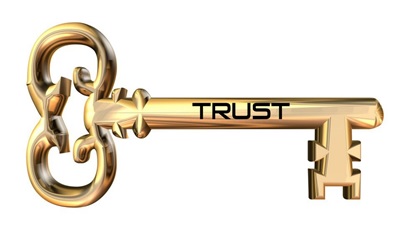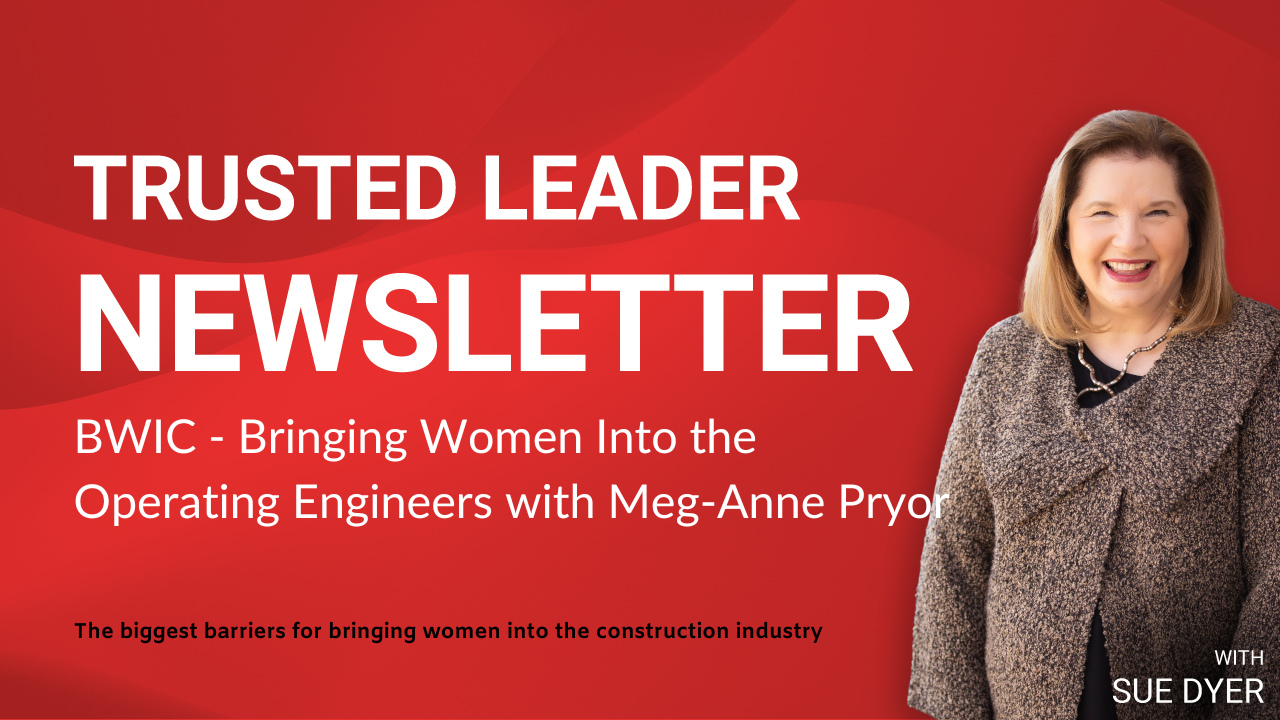Dear Construction Nation,
Have you ever been baffled by what makes one project team unmistakably high performing, and another team, with a similar caliber of members, fall short of success? This has been a question I’ve studied for over 35 years. I wanted to know; how can we ensure our projects succeed?
The good news I’ve found, is that is does not cost one more cent to be highly successful, over being unsuccessful – in fact it may cost less. Let me explain.
Excellence requires TRUST. Without trust, excellence is just not possible. And this applies to owner’s, contractor’s, subcontractor’s, and designer’s businesses. You bring your culture to EVERY project you do.

I’ve facilitated partnering on over 4,000 construction projects. Here is how I’ve seen a high trust, excellence-based culture play out; versus a fearful, mediocrity based culture. Of course the leader(s) sets and spreads the culture, but this is what happens when you have a high trust culture on your projects.
1. Coordination
The team is on the same page. The team uses the design to document a clear understanding of what is going to be installed each step of the way. Shop drawings match what is to be installed and are corrected if things change. Everyone knows what they are going to do and has the tools and ability to perform the work (i.e. access, laydown, materials, enough people, etc.). They would not arrive on site only to be surprised that someone ordered the wrong tile, or the girder is too short, or the shop drawings don’t match the plans, etc. The team has clearly worked together as ONE team to coordinate their efforts before they start working, so they are not constantly disrupted by surprises that could/should have been known.
2. Quality Control
The team checks and double checks to make sure things are right using mockups, modeling, testing, measuring, and checking to make sure equipment and materials are ready (and enough). They don’t spend time arguing for not having mockups (I see this fairly often), then are surprised when the material doesn’t work, is wrong, not enough, etc. For example, they do a water test of the windows before they are installed or they do a test strip to make sure that the mix, equipment, application, and weather produce a good result.
Quality for your project should be determined within your design when the budget and finishes are decided. But quality of workmanship is determined by the team. I’ve seen highly skilled craftspeople not be able to do a quality job, because quality control was seen as a “wasted” effort.
3. Problem Solving
One of the things I love about construction folks, is that we are problem solvers. We just love solving problems. We may not love the stress that comes along with it sometimes. Excellence comes when everyone on the project to be looking for things that could become a problem and encourages these to be brought up as soon as seen. The entire idea is to capture potential issues and resolve them BEFORE they impact the project. They want to stop the team from becoming reactionary to each new problem that comes up.
If I had a dime for each extra dollar, it cost a project, for when a project leader told me, that we would just wait to the end to solve the project problems – I would have millions of dollars. To be high performing, means you work to identify, resolve, plan, and install, before you are forced to stop or change direction.
4. Strategy
The highest performing teams have a strategy for building the project (scope). At least someone on the job can wrap their mind around the entire project and visualize how it is going to be built within the time frame and budget. They are not “hoping” that we will get there.
I have seen so many projects that are like a rudderless ship on a voyage. They don’t have a clear and agreed upon plan for how they are going to get to their destination. I hear owner’s and CM’s often say that the contractor is just trying to create change orders. Sure, some may do so, but what I see more often is that there isn’t anyone within the team who knows how to put all the pieces together to optimize the success of the project. Instead, they just do the work that is in front of them, most often surprised by things that pop up and don’t work.
5. Learning Environment
A high performing team learns from the problems they hit, so they can improve. If there are repetitive operations, they work to make each one better and better (much like you would in a manufacturing process). These high performing teams openly share their problems and solutions so the entire team understands and can learn to improve. They don’t react to each new issue or problem as if it is brand new and never been seen before, making the same mistakes over and over.
High performing teams embrace learning. Learning from each other and from the problems so they can create new ways to do things. They love to learn how to create better teams, be a better leader, and how to do things that have never been done before – to become extraordinary.

TRUST is Key
None of these high performing team behaviors are possible without trust. In fact, you will only be as good as the level of trust you develop. Think about it. If the team doesn’t trust each other enough to be open and honest, then you aren’t going to have honest communication and it will be impossible to get cooperation or collaboration so that you can have good coordination and problem-solving. Without alignment of everyone toward your common purpose, you are drifting along hoping to succeed.
Excellence does not cost more. It is created by the continuous improvement atmosphere that you have within your project team. Not an atmosphere of protection and fear, but one of collaboration and commitment. High performing teams are more fun, do extraordinary things, and manage the inherent risks we have on our projects!
This is why I feel so strongly that each person working on a project needs to know how to be a trusted leader, who can build a high trust atmosphere that fosters communication, cooperation, collaboration, co-creation, coordination, and success. Without this, you are just hoping that the stars will align for you.
I feel equally strong, that each business that is going to be working as part of your construction project team, needs to bring with them their own high trust culture. How are you going to be able to be a part of a high trust project, if your business operates in an atmosphere of fear, protectionism, and plays a zero-sum game?
I’ve created a Free Resource for you!! Download your free Trusted Leader Evaluation.
In trust,

P.S. Curious how you can improve your project’s chance at success?
- If you liked this topic today, why not listen to Sue on Episode 37 of the Lead with Trust Podcast.
- Want to create a Trust Strategy for Your Business? That is exactly what the Trust Workshop is designed to do for you, your team, and your business.






